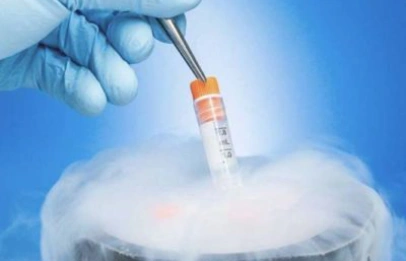Embryo freezing (cryopreservation) stores fertilized eggs for later use. Our IVF program has been using embryo vitrification (freezing) since 2015 with excellent success rates.
In young patients or those who have high ovarian reserve, it is likely that excess embryos will result after IVF, hence the advice to freeze them. Vitrification doesn’t harm embryos and is associated with a high survival rate and high pregnancy rates after thawing and transfer. Excess embryos that are frozen can be used for later pregnancy attempts without having to undergo another ovarian stimulation and oocyte retrieval. Other factors contributing to a couple deciding to freeze embryos:
- Those wishing to delay pregnancy for personal reasons as focusing on their career.
- One of the partners with a cancer diagnosis wishing to preserve fertility prior to chemotherapy, radiotherapy or surgery.
- Poor IVF responders who wish to do embryo pooling and later preimplantation genetic diagnosis (PGT-A).
- Endometrial lining or hormonal test results not suitable for a fresh embryo transfer, hence the embryos are frozen to be transferred on another cycle.
- Egg donation whereby the donor has her oocytes retrieved, inseminated with the recipient’s husband’s sperm and the embryos are frozen to be transferred later to the recipient’s uterus.
Embryos can be frozen for an unlimited period of time, however depending on each country’s rules and regulations. In Lebanon, there is no set time limit for the duration a couple can freeze their embryos.
The cost of embryo freezing varies between 250-500 $ per year depending on the number of straws frozen. Book an appointment or e-mail our doctors

